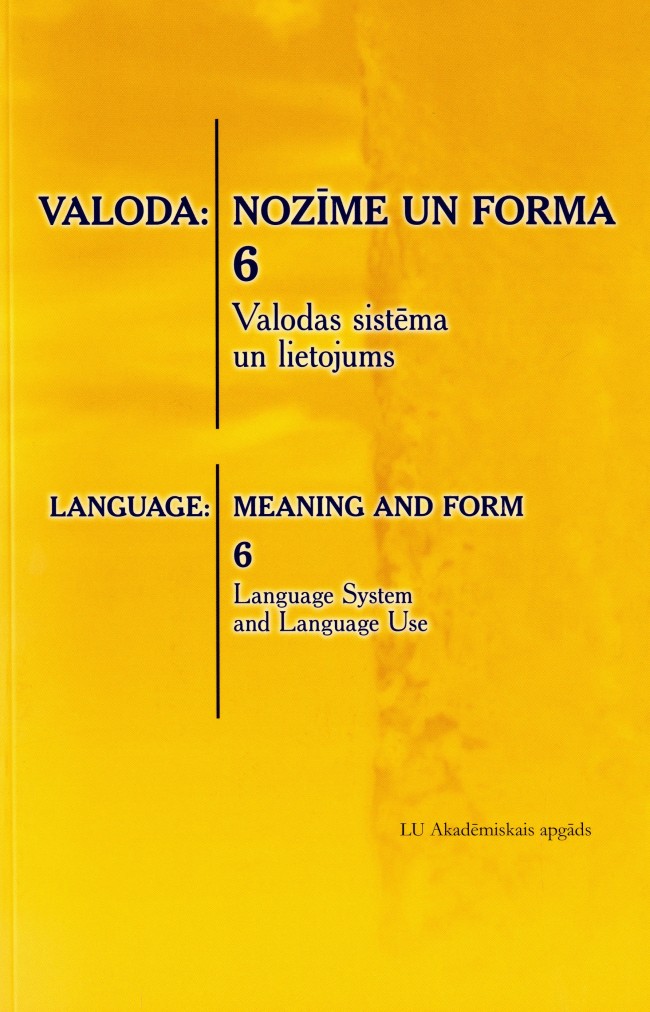Derivatīvās galotnes izmantojums termindarināšanā Emīlijas Soidas uzskatu kontekstā
The use of derivational endings in term formation in the context of views of Emīlija Soida
Author(s): Iveta PūteleSubject(s): Language and Literature Studies, Theoretical Linguistics, Morphology, Baltic Languages
Published by: Latvijas Universitātes Akadēmiskais apgāds
Keywords: derivatīvā galotne; galotnes derivatīvās funkcijas; termindarināšana; invertētā vārddarināšana; atvasināšana; derivatīvo funkciju aktivizēšanās
Summary/Abstract: The derivational ending is a widely used means of term formation. The derivative functions of endings in the Latvian language is one of the topics, Emīlija Soida dealt with in her research, occasionally also making remarks regarding the role of derivational endings in term formation.The article analysis the views of Soida regarding the use of derivational ending in word formation and term formation, types of terms formed with the derivational ending, their characteristics, along with the discussion of the way the ideas of Soida express themselves in contemporary term formation.Soida paid special attention to the derivations from the verbs of the 2nd and 3rd conjugation, as she believed that to be a new activisation of the derivative functions of endings in the Latvian literary languages, when nouns semantically corresponding to the verbs, but of simpler structure are formed. Soida used a term inverted word formation in regard to these derivations.Analysing the terminological material, a conclusion can be reached, that derivation with the derivational ending from the verbs of the 2nd and 3rd conjugation, especially in term formation, has been more widespread in 1960’s–70’s, as indicated by Soida, while the same method of noun formation was also known previously. Prefixed stems of the verbs of the 2nd and 3rd conjugation are most frequently used in formation of nouns with the derivational ending; the most productive derivational ending for creation of nouns from verb stems is -e; the derivational ending is most frequently used exactly in term formation, as the meaning of such a derivative usually is more narrow and specialised in comparison to the original word.
Journal: Valoda: nozīme un forma
- Issue Year: 2015
- Issue No: 6
- Page Range: 35-41
- Page Count: 7
- Language: Latvian

